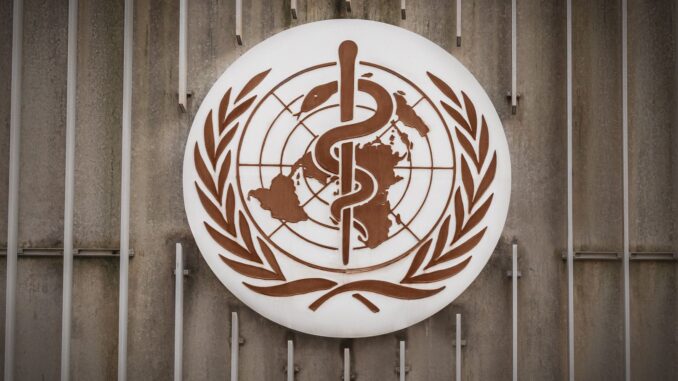
Francis Boyle, J.D., Ph.D., bioweapons expert and professor of international law at the University of Illinois, claims that the latest proposals by the World Health Organization’s (WHO) may violate international law.
Boyle, who made the remarks during an exclusive interview the The Defender, has called for the US federal and state governments to exit the WHO immediately.

BYPASS THE CENSORS
Sign up to get unfiltered news delivered straight to your inbox.
You can unsubscribe any time. By subscribing you agree to our Terms of Use
Latest Video
The Defender reports: Secretive negotiations took place this week in Geneva, Switzerland, to discuss proposed amendments to the World Health Organization’s (WHO) International Health Regulations (IHR), considered a binding instrument of international law.
Similar negotiations took place last month for drafting a new WHO pandemic treaty.
While the two are often conflated, the proposed IHR amendments and the proposed pandemic treaty represent two separate but related sets of proposals that would fundamentally alter the WHO’s ability to respond to “public health emergencies” throughout the world — and, critics warn, significantly strip nations of their sovereignty.
According to author and researcher James Roguski, these two proposals would transform the WHO from an advisory organization to a global governing body whose policies would be legally binding.
They also would greatly expand the scope and reach of the IHR, institute a system of global health certificates and “passports” and allow the WHO to mandate medical examinations, quarantine and treatment.
Roguski said the proposed documents would give the WHO power over the means of production during a declared pandemic, call for the development of IHR infrastructure at “points of entry” (such as national borders), redirect billions of dollars to the “Pharmaceutical Hospital Emergency Industrial Complex” and remove mention of “respect for dignity, human rights and fundamental freedoms of people.”
Francis Boyle, J.D., Ph.D., professor of international law at the University of Illinois, said the proposed documents may also contravene international law.
Boyle, author of several international law textbooks and a bioweapons expert who drafted the Biological Weapons Anti-Terrorism Act of 1989, recently spoke with The Defender about the dangers — and potential illegality — of these two proposed documents
Other prominent analysts also sounded the alarm.
Proposals would create ‘worldwide totalitarian medical and scientific police state’
Meeting in Geneva between Jan. 9-13, the WHO’s IHR Review Committee worked to develop “technical recommendations to the [WHO’s] Director-General on amendments proposed by State Parties to the IHR,” according to a WHO document.
The IHR was first enacted in 2005, in the aftermath of SARS-CoV-1, and took effect in 2007. They constitute one of only two legally binding treaties the WHO has achieved since its inception in 1948 — the other being the Framework Convention on Tobacco Control.
As previously reported by The Defender, the IHR framework already allows the WHO director-general to declare a public health emergency in any country, without the consent of that country’s government, though the framework requires the two sides to first attempt to reach an agreement.
According to the same WHO document, the recommendations of the IHR Review Committee and the member states’ Working Group on Amendments to the International Health Regulations (2005) (WGIHR) will be reported to WHO Director-General Tedros Adhanom Ghebreyesus by mid-January, in the leadup to the WHO’s 76th World Health Assembly in late May.
Boyle said he questioned the legality of the above documents, citing for instance the fact that “the proposed WHO treaty violates the Vienna Convention on the Law of Treaties,” which was ratified in 1969, and which Boyle described as “the international law of treaties for every state in the world.”
Boyle explained the difference between the latest pandemic treaty and IHR proposals. “The WHO treaty would set up a separate international organization, whereas the proposed regulations would work within the context of the WHO we have today.”
However, he said, “Having read through both of them, it’s a distinction without a difference.”


